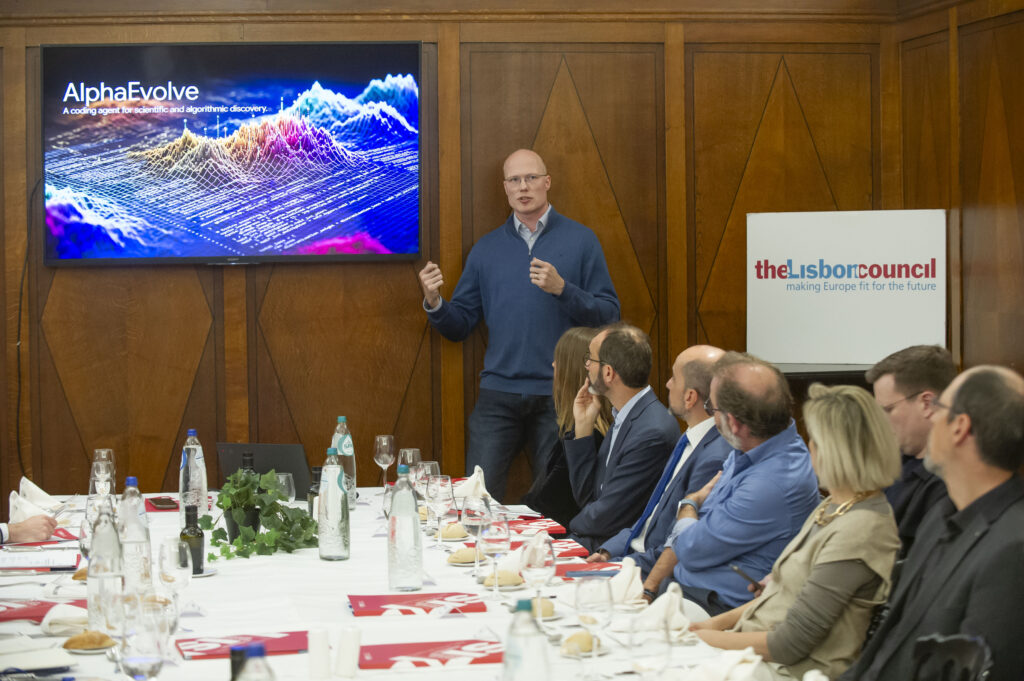October 2025
The Next Generation of AI Tools for Scientific Research

After gatherings in Berlin, Amsterdam and Rome, it continues the work of Science Salon, the Lisbon Council’s flagship initiative to promote the responsible uptake of AI in science, health, energy and beyond. As the European Commission launched the resources for AI in science (RAISE) initiative, the Lisbon Council convened the fourth session in Brussels, bringing together policymakers, researchers and industry experts for an open conversation on how to turn Europe’s ambitious vision into reality, aligning policy, infrastructure and collaboration models. In this spirit, the High-Level Working Lunch on ‘The Acceleration of Research and Innovation: What the Rise of General-Purpose AI Scientific Tools Means for Scientists and for Europe’s Competitiveness’ delved deep into new cutting-edge AI tools and their impact on scientific progress.
What do the new generation of general-purpose AI scientific tools mean for researchers and for Europe’s global competitiveness? What must be done to ensure scientists and businesses can safely, ethically and fully harness their potential?
Sebastian Nowozin, leading machine learning researcher at Google DeepMind, opened the session with a showcase of cutting-edge advances in AI for science, including AI Co-Scientist and AlphaEvolve. After, Liviu Știrbăț, head of unit, AI in science and critical technologies, directorate-general for research and innovation, European Commission, offered an institutional sneak-peek into the new RAISE initiative. The conversation deepened with interventions from leading voices, including Steve Aplin, head of data department, European XFEL; Tony Belpaeme, full professor, cognitive systems and robotics, University of Ghent, and member, Internet technology and Data science Lab (IDLab), imec; Francis de Véricourt, professor, management science and founding academic director, Institute for Deep Tech Innovation, European School of Management and Technology (ESMT) Berlin; Anne-Charlotte Fauvel, head, European Union relations, European Molecular Biology Laboratory; Sergio Grimbs, generative AI expert, Bayer AG; Edit Herczog, senior European Union liaison officer, GÉANT Academic Network, and chair, advisory board, The European Union Agency for the Cooperation of Energy Regulators (ACER); Bjorn Juretzki, head of unit, data policy and innovation, directorate-general for communications networks, content and technology, European Commission; Magdalena Kula, counsellor for research, Permanent Representation of Poland to the European Union; Gabriele Mazzini, fellow, connection science, Massachusetts Institute of Technology (MIT); Radu Surdeanu, senior director, government affairs, Siemens Energy; Ana Xavier, head of unit, machinery, equipment and AI, directorate-general for internal market, industry, entrepreneurship and SMEs, European Commission; and Kai Zenner, head of office and digital policy adviser, Member of the European Parliament Axel Voss (Germany – European People’s Party), European Parliament.
Read about the previous session of Science Salon
Read Artificial Intelligence for Scientific Discovery: Is Europe Ready for It?